HYALURONATE - INJECTION
PHONETIC PRONUNCIATION: (HYE-a-loo-RON-ate)
COMMON BRAND NAME(S): Hyalgan, Synvisc
GENERIC NAME(S): hylan G-F 20
Uses
USES: This medication is used to treat knee pain in patients with joint inflammation (osteoarthritis). It is usually used in patients who have not responded to other treatments such as acetaminophen, exercise, or physical therapy. Hyaluronate (also known as hyaluronan) is similar to a substance that occurs naturally in the joints. It may work by acting as a lubricant and shock absorber in the joint, helping the knee to move smoothly, thereby lessening pain.
How to use HYALURONATE - INJECTION
HOW TO USE: Read the Patient Information Leaflet provided by your health care professional before you start using hyaluronate and each time you get a refill. If you have any questions, ask your doctor or pharmacist. Your doctor will give this medication by injection into the affected joint, usually once a week. Skin disinfectants that contain ammonium salts (such as benzalkonium chloride) should not be used to prepare the injection site. Your doctor may need to remove extra fluid from the joint before injecting the medicine. Dosage is based on your medical condition and response to treatment. Hyaluronate should not be injected into a vein or artery because increased side effects may occur. After receiving an injection of hyaluronate, you should avoid any activities that put stress on your knee (such as jogging, tennis, heavy lifting, standing on your feet for more than an hour) for 48 hours. Also, after the injection, you may experience increased pain and swelling in the knee at first. If the pain or swelling continues or worsens, talk to your doctor promptly. It is important to have this medication injected on schedule. It may take up to 3 injections before the full benefits of this medication occur. Tell your doctor if your condition persists or worsens.
Side Effects
Precautions
Interactions
Overdose
Images
Reviews
Faq for HYALURONATE - INJECTION
Hyaluronate injection is a medical procedure in which hyaluronic acid, a natural substance found in the body, is injected into a joint to improve mobility and reduce pain.
Hyaluronate injection works by providing lubrication and cushioning to the affected joint. It helps replace lost synovial fluid, which can improve joint movement and reduce pain.
Hyaluronate injection is commonly used to treat osteoarthritis, a degenerative joint disease that causes pain and stiffness. It can also be used for other joint conditions such as rheumatoid arthritis or joint inflammation.
The effect of hyaluronate injection can vary from person to person. Some individuals may experience relief for several months, while others may require repeated injections. On average, the benefits can last for about 6 to 12 months.
The injection itself may cause some discomfort, similar to any other injection. However, a local anesthetic is often used to numb the area and minimize pain. After the procedure, some individuals may experience mild soreness or swelling at the injection site.
Common side effects of hyaluronate injection may include temporary joint pain, swelling, or stiffness at the injection site. In rare cases, individuals may develop an allergic reaction or infection. It is important to discuss any potential risks or concerns with your healthcare provider.
The hyaluronate injection procedure typically takes about 15 to 30 minutes, depending on the number of joints being injected. Additional time may be required for preparation and recovery.
The number of injections needed can vary based on the individual's condition and response to treatment. It is common to receive a series of injections over a few weeks or months. Your healthcare provider will determine the appropriate dosage and schedule for your specific needs.
Yes, hyaluronate injection can be used in conjunction with other treatments for joint pain, such as physical therapy, pain medications, or corticosteroid injections. It is important to discuss all ongoing treatments with your healthcare provider to ensure they are compatible.
Disclaimer
IMPORTANT: HOW TO USE THIS INFORMATION: This is a summary and does NOT have all possible information about this product. This information does not assure that this product is safe, effective, or appropriate for you. This information is not individual medical advice and does not substitute for the advice of your health care professional. Always ask your health care professional for complete information about this product and your specific health needs.
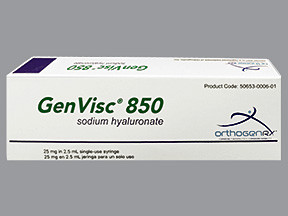
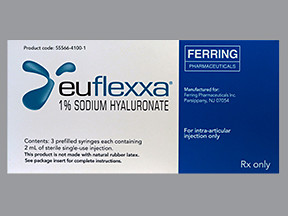
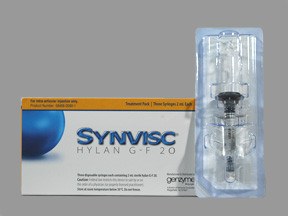

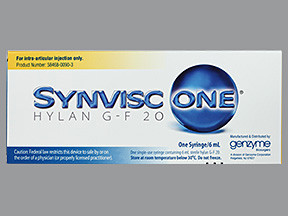
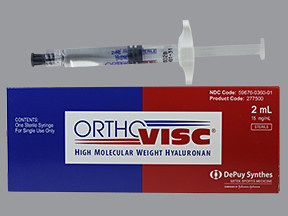
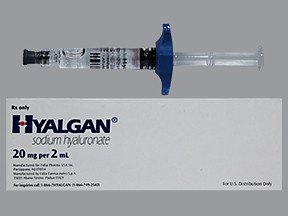
No Reviews Yet